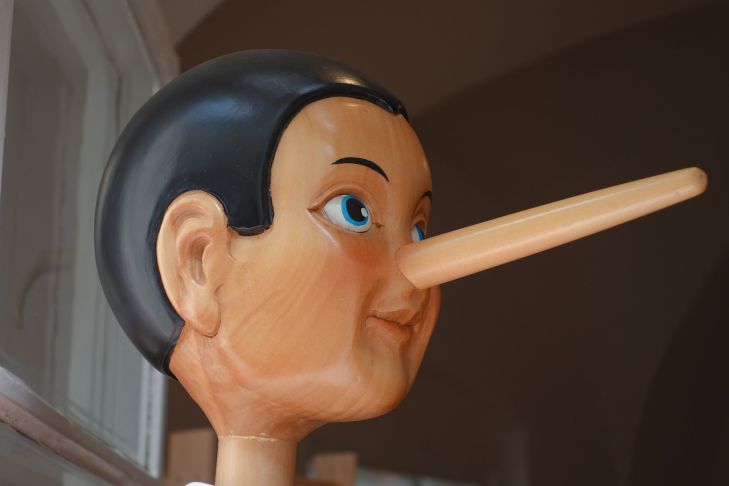Do you want to learn how to recognize lies?
You will easily acquire this skill if you remember just one phrase: “Every little thing matters.”
In other words, develop the habit of asking your interlocutor for even minor details when you have doubts about the veracity of a story.

Example: your husband is trying to prove to you that he was relaxing with friends in the evening and not meeting with his mistress.
Ask immediately: “Who suggested getting together?”, “Which cafe were you sitting in?”, “What time did you get there?”, “How many people were in the cafe?”, “Which of your friends were present at the meeting?”, “What food did you order?”, “What did you talk about?”, “What were your friends wearing?”, “How did you get home?”
This approach is extremely effective for two reasons.
Clarifying questions can make a person nervous.
The behavior of a person who is asked numerous clarifying questions depends largely on his honesty.
If the interlocutor is sincere, he will remain calm and will answer without problems. For one simple reason: he is honest, does not make anything up, so he is not afraid to get confused in the details.
But if the other person is lying, he will probably start to worry and get irritated.
Asked a person clarifying questions and he started to get nervous? Draw your own conclusions!
It's easy to catch your interlocutor in contradictions
If the liar still manages to remain calm and starts to cleverly invent details “on the fly,” then sooner or later he will make a mistake.
After all, if you don't come up with a "legend" in advance and think through all the details, then there will be contradictions in the story that will be noticed. As a result, the liar will be exposed.
